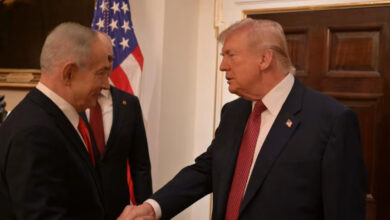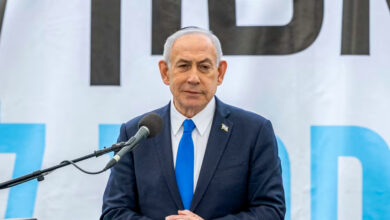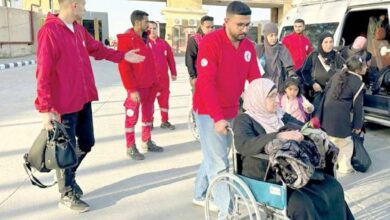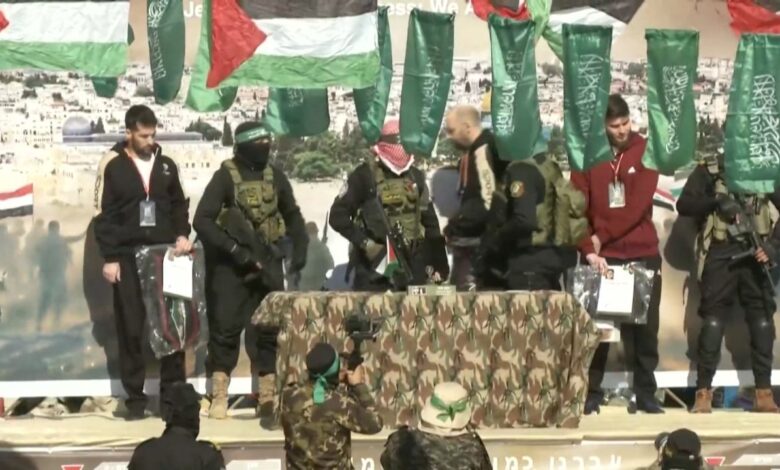
Three Israeli hostages have been freed from Gaza under a ceasefire agreement between Israel and Hamas after a dispute this week threatened to derail the deal.
American-Israeli Sagui Dekel-Chen, Russian-Israeli Alexandre Troufanov and Argentinian-Israeli Iair Horn were released in Khan Younis, southern Gaza, around 10 a.m. local time (3 a.m. ET) in the sixth such exchange under the truce. They were seen exiting vehicles surrounded by militants, who ushered the hostages on stage, where the captives addressed the crowd.
The men appeared to be in better health than the three hostages released the previous week, whose condition drew condemnation from Israeli officials.
The three were given what appeared to be bags carrying memorabilia. Horn was seen carrying what appeared to be small hourglasses and Troufanov appeared to face some difficulty climbing down the stairs.
In Tel Aviv’s Hostage Square, the atmosphere was expectant and calm as people holding posters watched the releases live. In Kibbutz Nir Oz, where all the three hostages were taken, families gathered to watch the release. Sagui Dekel-Chen’s family crowded around the television to watch the moment.
A spokesperson for the Israeli Prison Service said 369 Palestinian prisoners were released on Saturday. The Palestinians have yet to confirm the exact number of releases.
Six buses carrying Palestinians arrested from Gaza after the October 7 attack arrived in the enclave Saturday.
The buses, believed to be carrying 333 Palestinian detainees, entered Gaza from Kerem Shalom into Rafah, and headed to a hospital in Khan Younis where large crowds were waiting. Earlier on Saturday, 36 Palestinians were released to the occupied West Bank, including 24 who were later exiled to Egypt.
Some of the released Palestinian prisoners and detainees were ordered to wear clothes provided by the Israeli Prison Service with the quote “We will not forget, and we will not forgive” inscribed next to a Star of David. The move infuriated Palestinian groups, including Hamas and Islamic Jihad, who called it a “flagrant violation of all international and humanitarian laws.”
The released detainees later burned the uniforms, according to videos.
Saturday’s releases represents the largest number of Palestinian prisoners freed during the exchanges so far.

Show of force in Gaza
A crowd of armed militants gathered in Gaza ahead of the hostage release, which took place close to the house of slain former Hamas leader Yahya Sinwar, killed by Israel in October. Images showed masked fighters carrying weapons and gathering around a stage with flags and images depicting Sinwar and other militant leaders.
“No migration except to Jerusalem,” read a banner festooning the stage, in an apparent rebuke to US President Donald Trump and his plans for a mass displacement of Palestinians from the enclave.
Earlier this week, Hamas said was postponing today’s releases after accusing Israel of violating its commitments to the ceasefire agreement. Amid the dispute, Trump urged Israel to cancel its deal with Hamas and “let all hell break out”.
Israeli Prime Minister Benjamin Netanyahu’s office thanked Trump for his “clear and unequivocal” statement, following the hostages’ release Saturday, saying it helped push Hamas to back down and free the hostages.
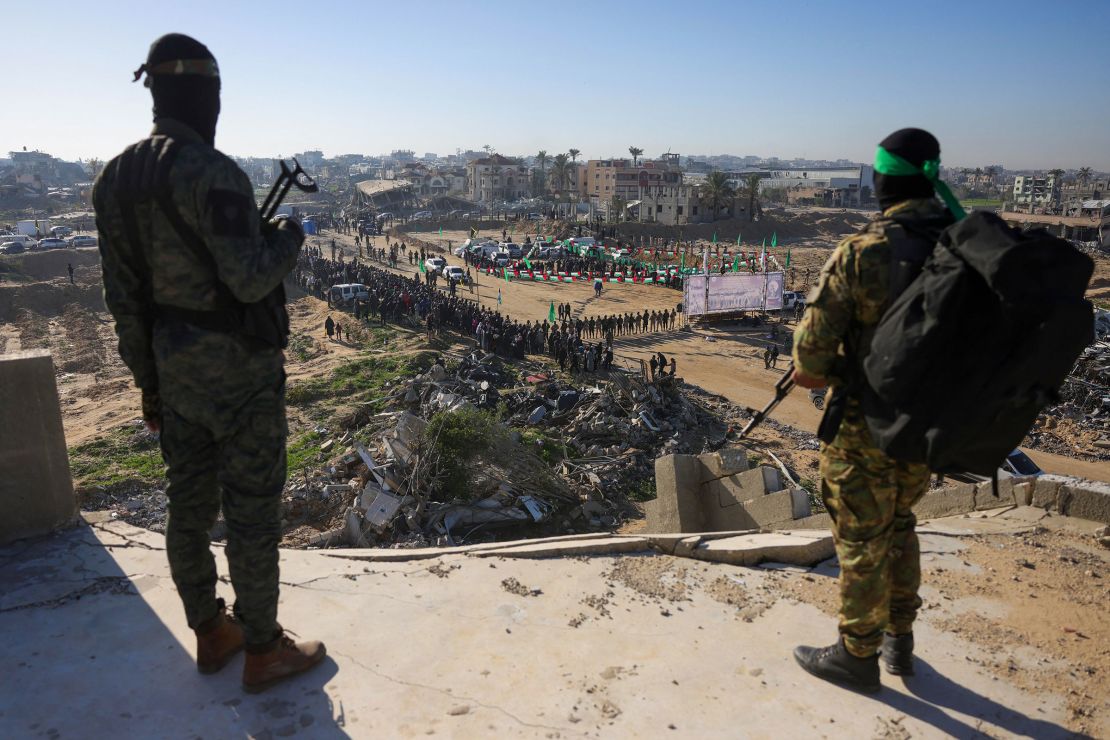
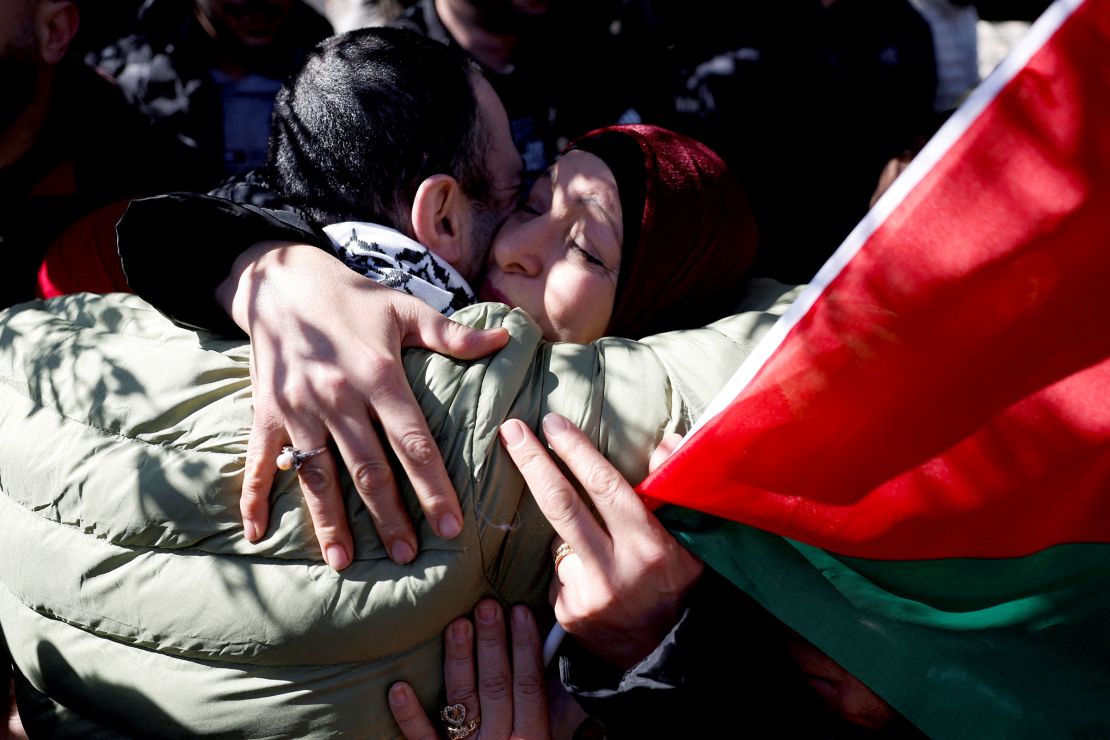
In a statement following the latest releases, Hamas said that the only way those still held captive would be freed was “through negotiations and by adhering to the requirements of the ceasefire agreement.”
All three men released on Saturday were kidnapped from the kibbutz Nir Oz during the October 7 attack, and had been held captive for almost 500 days.
They are now back on Israeli soil, the Israeli military said. They are currently undergoing an initial medical assessment at a reception center in southern Israel, according to the military.
Troufanov was 27 years old when he was kidnapped by Palestinian Al-Quds Brigades, a militant group allied with Islamic Jihad, along with his grandmother, Irena Tati, his mother Lena Troufanov and girlfriend Sapir Cohen, who were all released in a previous deal. His father Vitaly was killed during the attack.
Dekel-Chen was 35 years old when he was kidnapped by Hamas while trying to defend the kibbutz from attackers. His wife Avital was pregnant with their third child during the attack, and gave birth to Dekel-Chen’s daughter while he was in captivity. She turned one in December.
Dekel-Chen’s family said that he will meet his daughter for the first time on Saturday.
Horn, now 46, was also captured by Hamas with his brother Eitan, who remains in captivity.
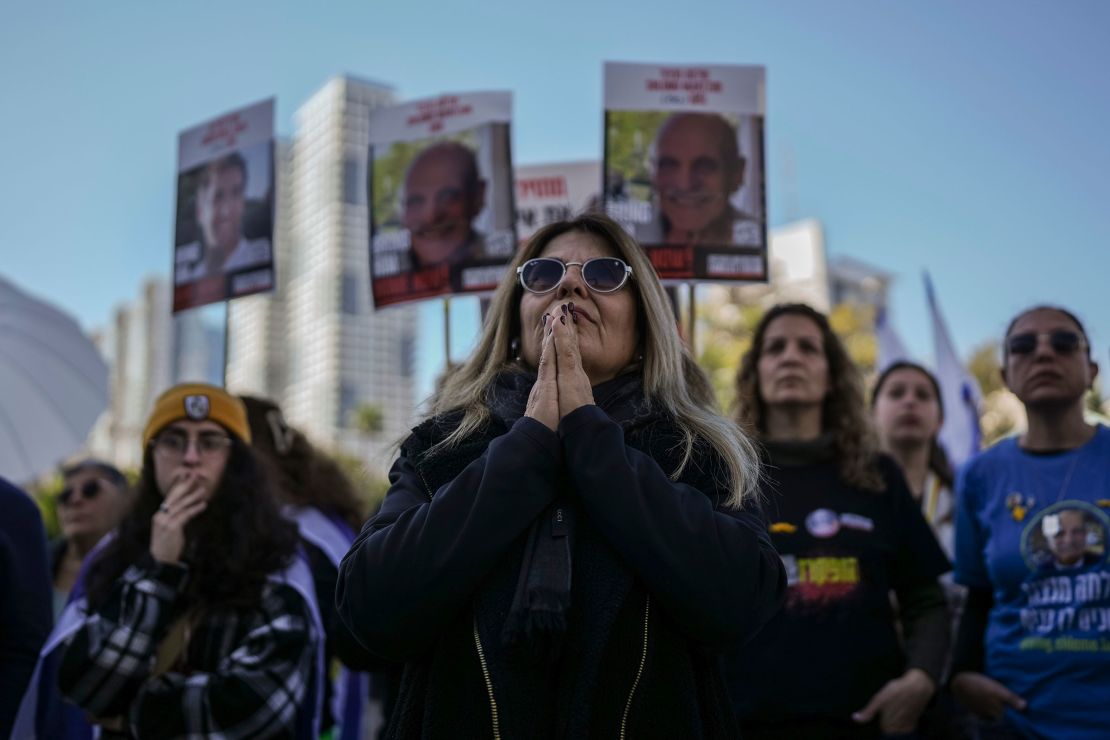
The Gazan militants have now released a total of 19 Israeli hostages as part of the first phase of the ceasefire agreement, of a total of 33 promised at staggered intervals during this stage. Eight of those 33 are dead, according to the Israeli government.
Despite Saturday’s releases, uncertainty looms over the future of the wider agreement. Negotiations on extending the ceasefire – which expires on March 1 – are in doubt.
As well as taking hostages, Palestinian militants killed more than 1,200 people during the October 7 attack. Israeli bombardment of Gaza since has killed more than 48,000 people, according to the Palestinian Ministry of Health in Gaza, reduced much of the enclave to rubble, and led to a humanitarian catastrophe for surviving residents.
The war has spilled over into the wider region, putting Israel in conflict with key Hamas backer Iran, as well as Tehran proxies such as Hezbollah in Lebanon and the Houthis in Yemen.

